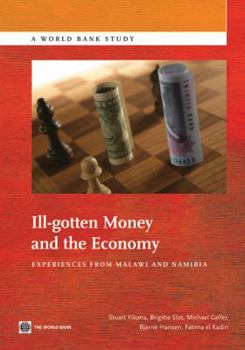Ill-Gotten Money and the Economy
Many developing countries have introduced policies to tackle ill-gotten money over the past years. Perception remains that such moves were more a result of international pressure being exercised than genuine ownership of such an agenda. There is not enough analysis and literature of how an anti-financial crime framework does (or does not) contribute to the development path of developing countries - or how best to use these tools in a developing country environment. This study was aimed at initially exploring the effects of ill-gotten money or proceeds of crime and anti-money laundering policies on economic development. The study focused on two developing countries: Malawi, (a low-income country) and Namibia (an upper-middle-income country). The starting point of this analysis is that anti-money laundering is essentially a tool to address criminal activities - and that, as a result, understanding criminal activities and how proceeds of crime impact development. The purpose of this study was: (i) to provide an initial answer to the question if and how measures to address proceeds of crime contributes to economic development; and (ii) to develop a framework that enable governments in developing countries to analyze the main sources of ill-gotten money and its effects on the economy.
Format:Paperback
Language:English
ISBN:0821388878
ISBN13:9780821388877
Release Date:October 2011
Publisher:World Bank Publications
Length:118 Pages
Weight:0.47 lbs.
Dimensions:0.3" x 7.1" x 10.0"
Customer Reviews
0 rating





